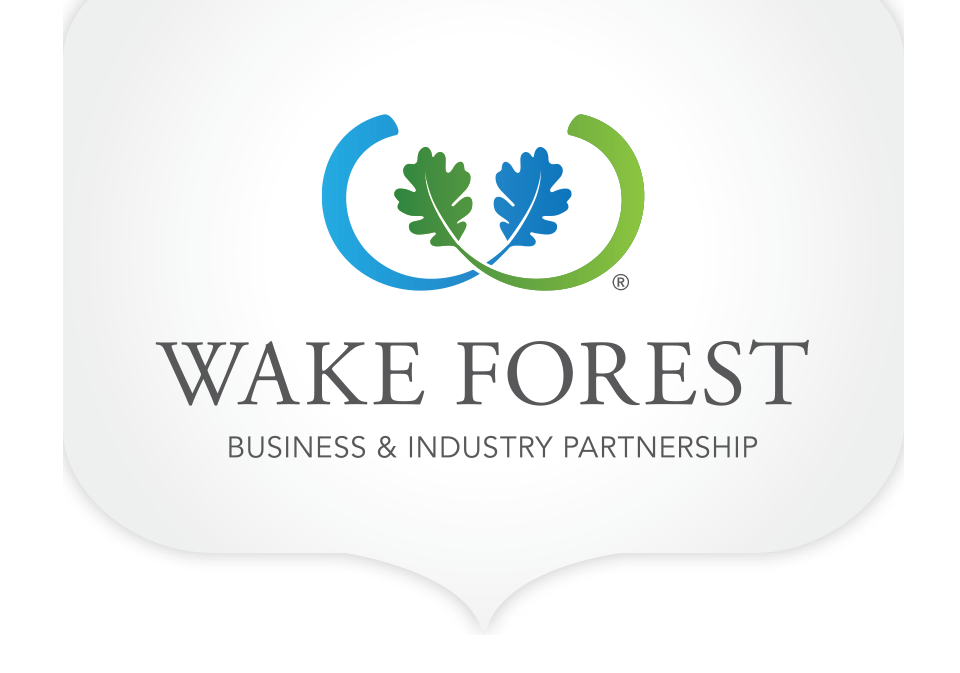Since 2018, plans for an amenity-rich technology park in the Town of Wake Forest have involved a close collaborative relationship between Wake Forest Business & Industry Partnership (BIP) and the Southeastern Baptist Theological Seminary, which owns the 200-acre property off Stadium Drive near US Highway 1. But more recently, another key BIP partnership is advancing the site’s readiness for development as northern Wake County’s only life sciences industry center.
With technical and financial support from ElectriCities, the Tech Park is now a Smart Site, one of only 25 properties to undergo an exhaustive review for readiness. “Successful economic development is all about having the right partnerships in place, and few partners are more valuable to us than ElectriCities,” says Jason Cannon, President and CEO of the BIP. “Their support for our success through the years has taken on many forms, but the investment they’ve been willing to make in readying the Tech Park for development will yield benefits to the Town and the region for years to come.”
Few organizations are more generous in their support of North Carolina economic development than ElectriCities, the Raleigh-based non-profit that serves the state’s municipal power communities. Wake Forest is one of 52 towns and cities in North Carolina served by ElectriCities, which was established in 1965 by an act of the North Carolina General Assembly. Today, the organization provides wholesale power, training, legislative representation, and customer service support to its member communities.
ElectriCities also has an active economic development department that works closely with communities in developing and marketing quality industrial and commercial sites. That includes the Smart Sites® program, which collects and organizes geotechnical, pricing, environmental, and other data on properties. The objective: reduce risk and ramp-up time for arriving employers.
“We certify on average about four sites per year now,” explains Carl Rees, manager of economic and community development at ElectriCities. The costs of creating a Smart Site range from $25,000 to $40,000 each, and currently only half of his organization’s member communities have a Smart Site. “Costs vary because occasionally your first study reveals that you will need to do more studies,” he says. The organization calls in top engineering firms and economic development consultants from around the state to perform the exhaustive work.
About 40 percent of economic development projects specifically seek a certified site, according to recent data presented by the Economic Development Partnership of North Carolina (EDPNC). “What we do know is that when site consultants, brokers, and industrial developers are looking at a site, the first types of questions involve things like wetlands, soil conditions, and infrastructure,” Rees says. Archeological surveys also are conducted, as are efforts to detect any habitats of endangered species on the site.
Other utilities such as Duke Energy operate their own certification programs, as do the NC Department of Commerce and private consulting firms. “Certification can mean different things in different places,” Rees continues. “What’s important is the underlying studies you’re doing.”
The resulting property then enjoys enhanced credibility as a site selection option. Arriving businesses know they won’t incur ugly surprises after plans are announced and development begins. Certification also eases the local, state, and federal permitting process. “It speaks to the stability and readiness of the site for development when you’re able to share reams of data about the site and its viability with location consultants and the real estate community,” Rees says.
Once a property becomes a Smart Site, ElectriCities can highlight it in the organization’s own extensive digital, print and email marketing. Rees also joins local economic development partners in attendance at industry trade shows and outreach missions to site selectors around the country. He expects the Tech Park will bring Wake Forest the same level of attention from the life sciences industry that Clayton, Holly Springs, and Sanford have received in recent years. “Wake Forest can see that kind of success as well.”
Ultimately, the development of the Tech Park will offer the town’s highly educated residents employment opportunities closer to home. “Talent can stay in town and have the same high-quality, great-paying jobs,” Rees says.




